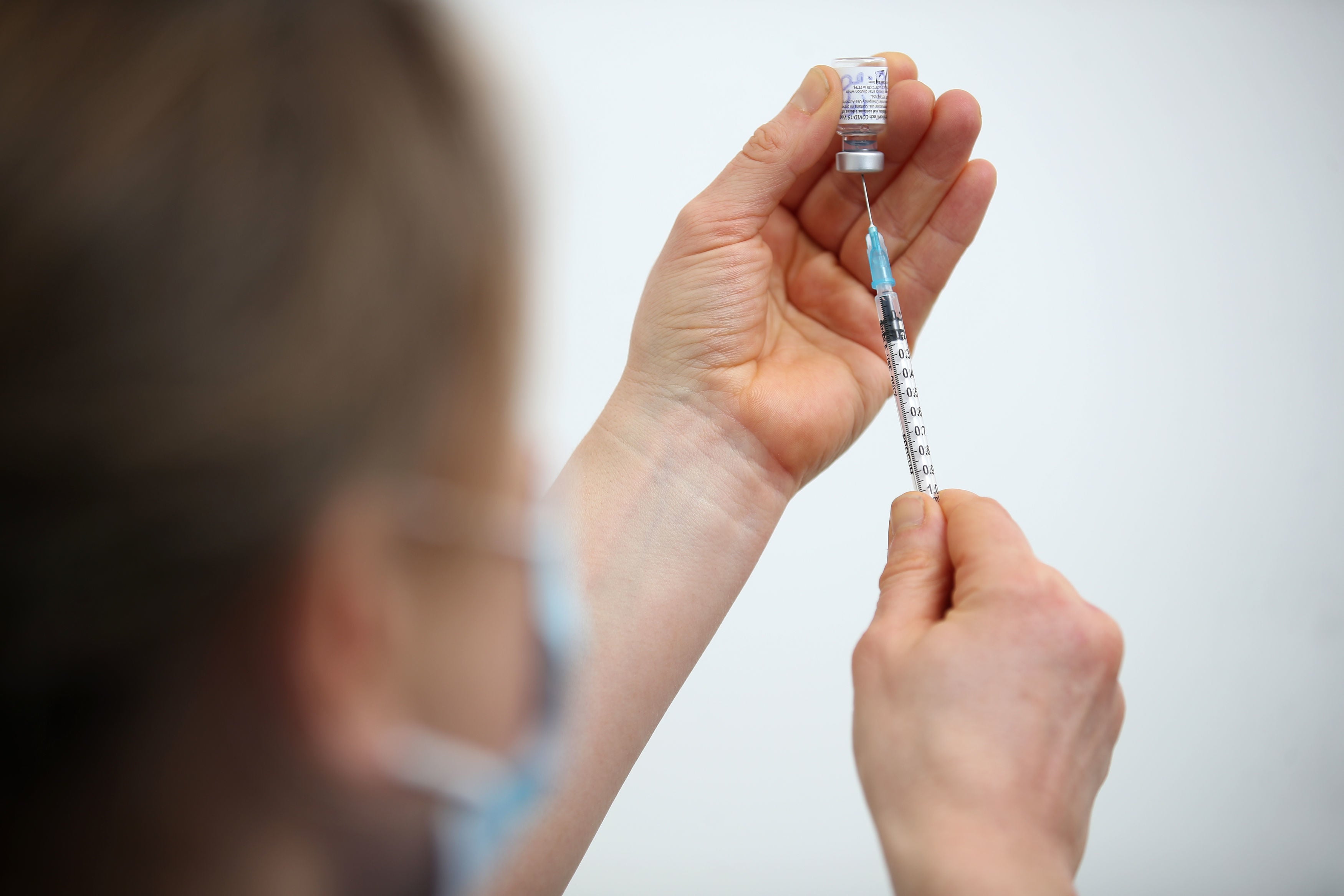Benefits of Covid-19 vaccines far outweigh very small risk of Bell’s palsy, study finds
Bell’s palsy is sudden onset of one-sided facial paralysis

The benefits and protection Covid-19 vaccines offer far outweigh a very small risk of Bell’s palsy, a new study has suggested.
Bell’s palsy is the sudden onset of one-sided facial paralysis, and in the majority of cases (70 per cent) the condition resolves itself within six months without treatment.
The chance of recovery is even higher (90 per cent) if patients receive early treatment with corticosteroids.
Research suggests a small number of cases have been reported in clinical trials of mRNA Covid-19 vaccines, but analyses of the association have come to conflicting conclusions.
In the US, the Federal Drug Administration (FDA) did not consider there to be a clear causal association for the two mRNA vaccines - the Pfizer/BioNTech (BNT162b2) and Moderna (mRNA-1273) jabs.
Acute partial facial paralysis has been reported by the European Medicines Agency as a rare side effect of both vaccines, which are being used in the UK.
In the new research, published in The Lancet Infectious Diseases journal, researchers analysed cases of the condition related to the two approved vaccines in Hong Kong - CoronaVac and the Pfizer jab.
Bell’s palsy cases were included in the analysis if they occurred within 42 days of a first or second vaccine dose, within the timeframe of the study.
Researchers also conducted a case-control study using territory-wide electronic health records database including 298 Bell’s palsy cases and 1,181 matched controls.
Between 23 February and 4 May this year, 28 clinically confirmed cases of Bell’s palsy were identified among the 451,939 people who received at least a first dose of CoronaVac.
Sixteen cases were identified among the 537,205 individuals who received at least a first dose of the Pfizer vaccine.
Experts analysed data from 2010-20, and estimated the background risk of Bell’s palsy in Hong Kong - around 27 cases per 100,000 people per year.
Global estimates range from 15 to 30 cases.
The study found that receiving CoronaVac was associated with 2.4 times increased risk of Bell’s palsy, whereas the Pfizer jab was not associated with a significantly increased risk.
The researchers concluded that for every 100,000 people vaccinated with CoronaVac, an additional 4.8 people may develop Bell’s palsy.
For the Pfizer/BioNTech jab, the increased risk was equivalent to an additional two cases per 100,000 people, which may be attributed to underpower in the current study.
Lead author Professor Ian Chi Kei Wong, from the University of Hong Kong, said: “Our study suggests a small increased risk of Bell’s palsy associated with CoronaVac vaccination.
“Nevertheless, Bell’s palsy remains a rare, mostly temporary, adverse event.
“All evidence to date, from multiple studies, shows that the beneficial and protective effects of the inactivated Covid-19 vaccine far outweigh any risks.”
Additional reporting by PA
Subscribe to Independent Premium to bookmark this article
Want to bookmark your favourite articles and stories to read or reference later? Start your Independent Premium subscription today.

Join our commenting forum
Join thought-provoking conversations, follow other Independent readers and see their replies
Comments